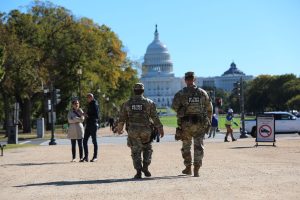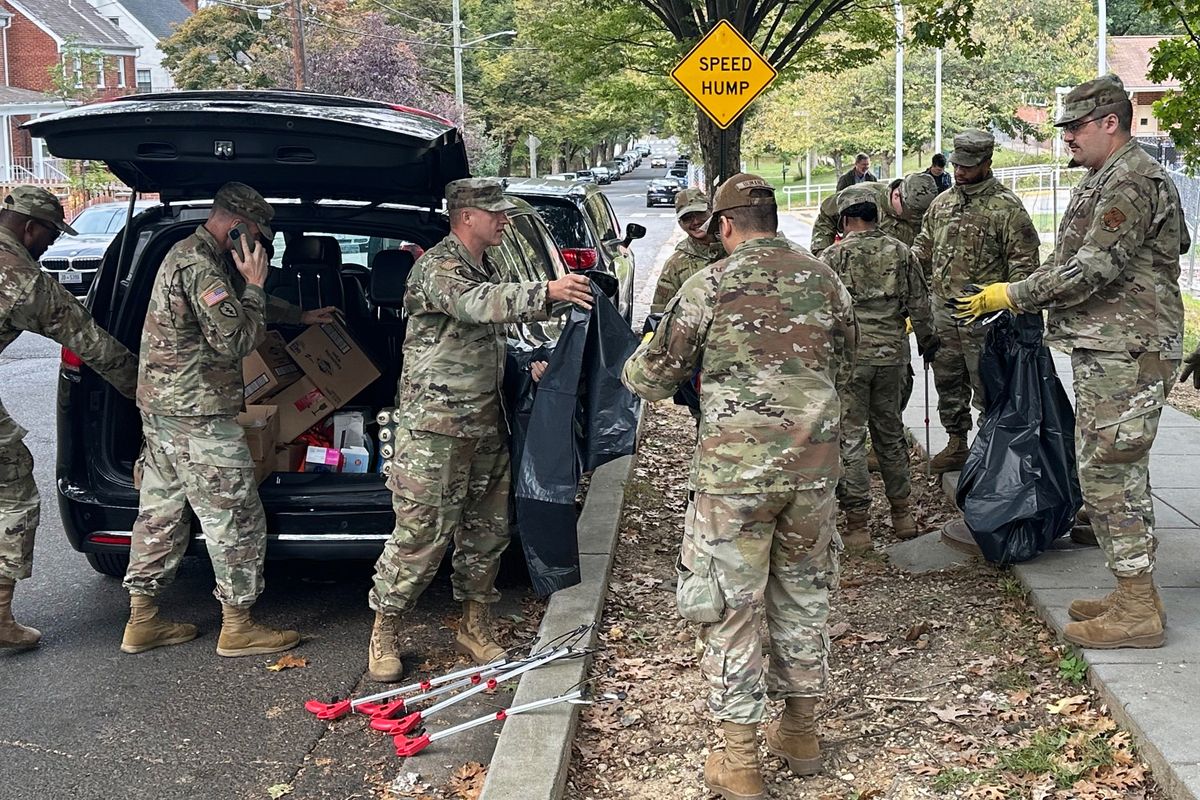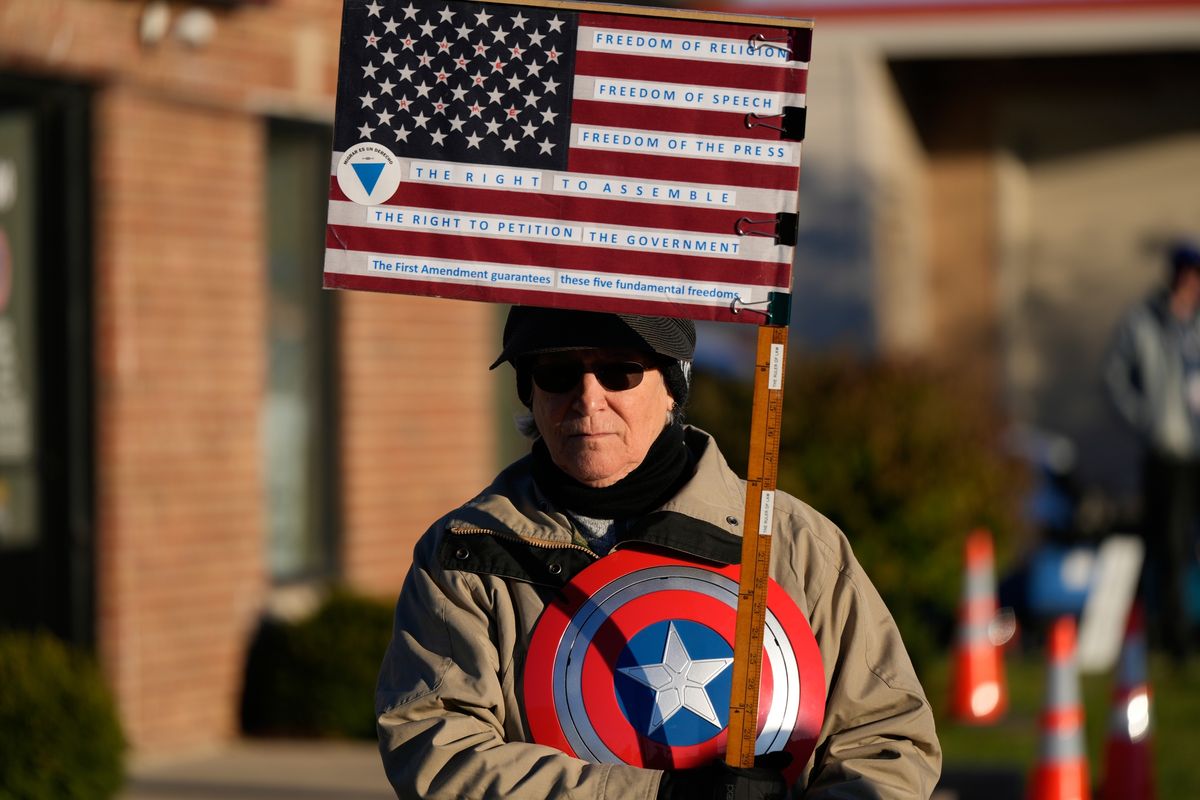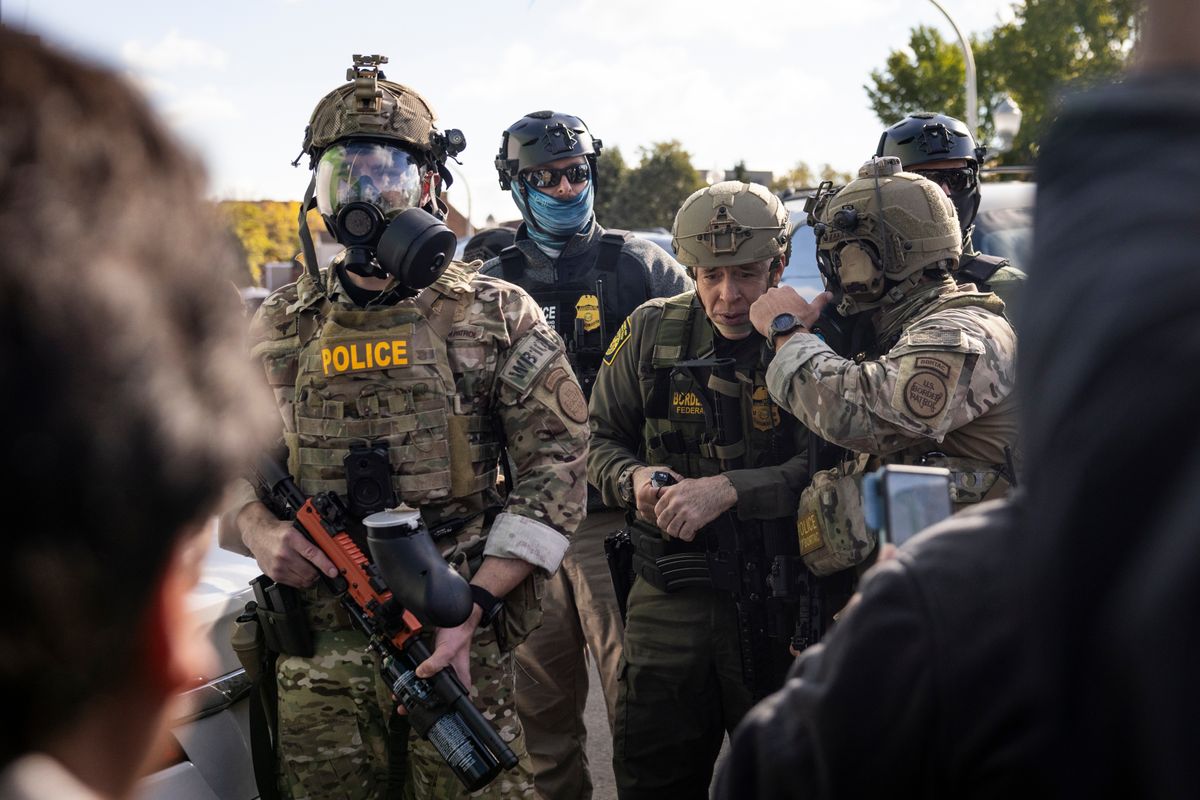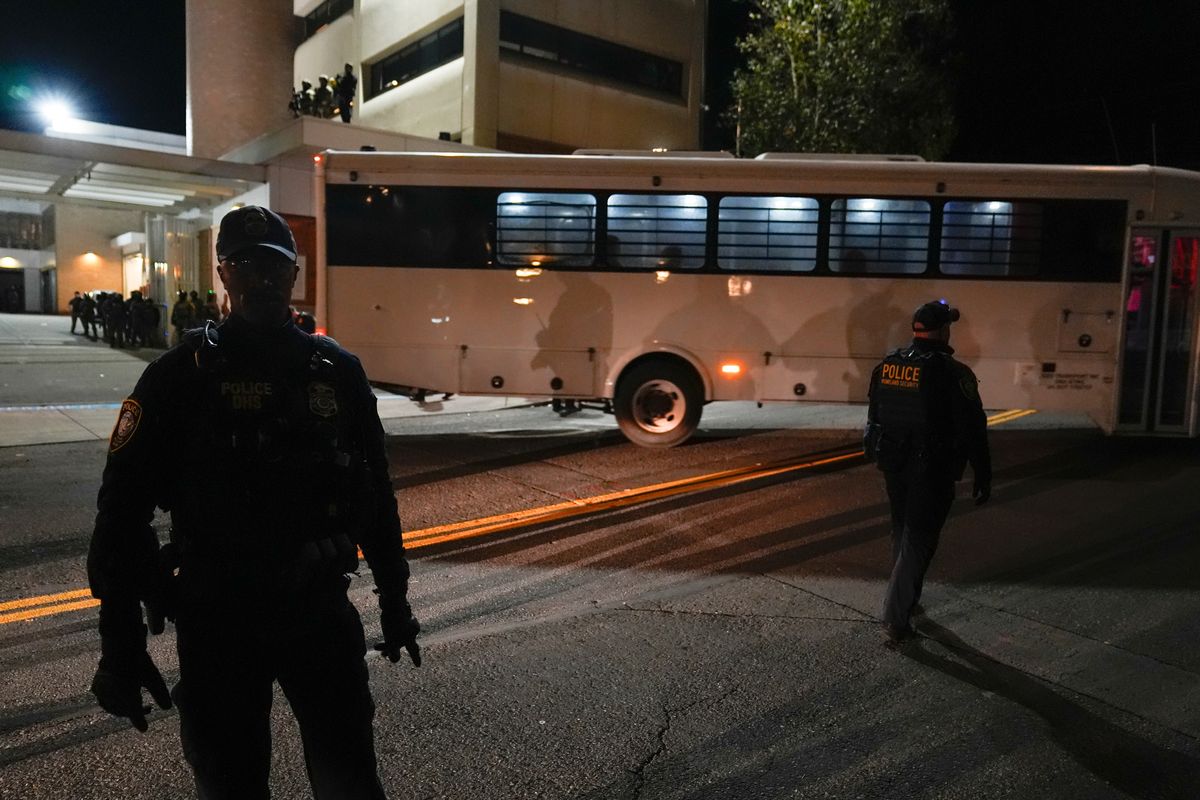The deployment of National Guard troops in Washington, D.C., faced a challenge in a court in the nation’s capital Friday, while a judge in Portland, Oregon, said she expects to rule by Monday on whether to let President Donald Trump put troops on the street there.
The hearings are the latest in a head-spinning array of lawsuits and overlapping rulings prompted by Trump’s push to send the military into Democratic-run cities despite fierce resistance from mayors and governors. Troop deployment remains blocked in the Chicago area, where all sides are waiting to see if the U.S. Supreme Court intervenes to allow it.
Here’s what to know about the latest legal efforts to block or deploy the Guard in various cities.
A challenge to troops in Washington, DC
U.S. District Judge Jia Cobb, an appointee of former President Joe Biden, heard arguments Friday on District of Columbia Attorney General Brian Schwalb ‘s request for an order that would remove more than 2,000 Guard members from Washington streets. She did not rule from the bench.
In August, Trump issued an executive order declaring a crime emergency in the district — though the Department of Justice itself says violent crime there is at a 30-year low.
Within a month, more than 2,300 Guard troops from eight states and the district were patrolling under the Army secretary’s command. Trump also deployed hundreds of federal agents to assist them.
It is unclear how long the deployments will last, but attorneys from Schwalb’s office said troops are likely to remain in Washington through at least next summer.
“Our constitutional democracy will never be the same if these occupations are permitted to stand,” they wrote.
Government lawyers said Congress empowered the president to control the D.C. National Guard’s operation. They argued that Schwalb’s lawsuit is a frivolous “political stunt” threatening to undermine a successful campaign to reduce violent crime in Washington.
Although the emergency period ended in September, more than 2,200 troops remain. Several states told The Associated Press they would bring their units home by Nov. 30, unless extended.
Judge continues hearing on West Virginia’s deployment
Among the states that sent troops to the district was West Virginia. A civic organization called the West Virginia Citizen Action Group says Gov. Patrick Morrisey exceeded his authority by deploying 300 to 400 Guard members to support Trump’s efforts there.
Under state law, the group argues, the governor may deploy the National Guard out of state only for certain purposes, such as responding to a natural disaster or another state’s emergency request.
“The Governor cannot transform our citizen-soldiers into a roving police force available at the whim of federal officials who bypass proper legal channels,” the group’s attorneys, with the American Civil Liberties Union of West Virginia, wrote in a court document.
Morrisey has said West Virginia “is proud to stand with President Trump,” and his office has said the deployment was authorized under federal law. The state attorney general’s office has asked Kanawha County Circuit Court Judge Richard D. Lindsay to reject the case, saying the group has not been harmed and lacks standing to challenge Morrisey’s decision.
Lindsay heard some arguments Friday before continuing the hearing to Nov. 3 to give the state time to focus more on whether Morrisey had the authority to deploy the Guard members.
“I want that issue addressed,” Lindsay said.
Troops in Oregon remain in limbo
U.S. District Judge Karin Immergut, a Trump appointee in Portland, is in a tricky legal spot.
She issued two temporary restraining orders earlier this month — one prohibiting Trump from calling up Oregon troops to Portland, and another blocking him from sending any Guard members to Oregon at all after he tried to evade the first order by deploying California troops instead.
A 9th U.S. Circuit Court of Appeals panel on Monday put the first ruling on hold, letting Trump take command of 200 Oregon National Guard troops. Now Immergut must decide whether to dissolve her second order.
DOJ has insisted Immergut is required to immediately dissolve the second order because its reasoning was the same as that rejected by the appeals panel. Attorneys for Oregon disagree, saying she must wait to see if the 9th Circuit will reconsider the panel’s ruling.
After hearing arguments Friday, Immergut said she would rule by Monday — if not sooner.
In Chicago, awaiting word from the Supreme Court
U.S. District Judge April Perry on Wednesday blocked Guard deployment to the Chicago area until the case is decided in her court or the U.S. Supreme Court intervenes. Perry previously blocked the deployment for two weeks through a temporary restraining order.
Attorneys representing the federal government said they would agree to extend the order, but would also continue pressing for an emergency order from the Supreme Court that would allow for the deployment.
Lawyers representing Chicago and Illinois have asked the Supreme Court to continue to block the deployment, calling it a “dramatic step.”
___
Associated Press writers Christine Fernando in Chicago, Adrian Sainz in Memphis and John Raby in Charleston, West Virginia, contributed.
By GENE JOHNSON and MICHAEL KUNZELMAN
Associated Press

